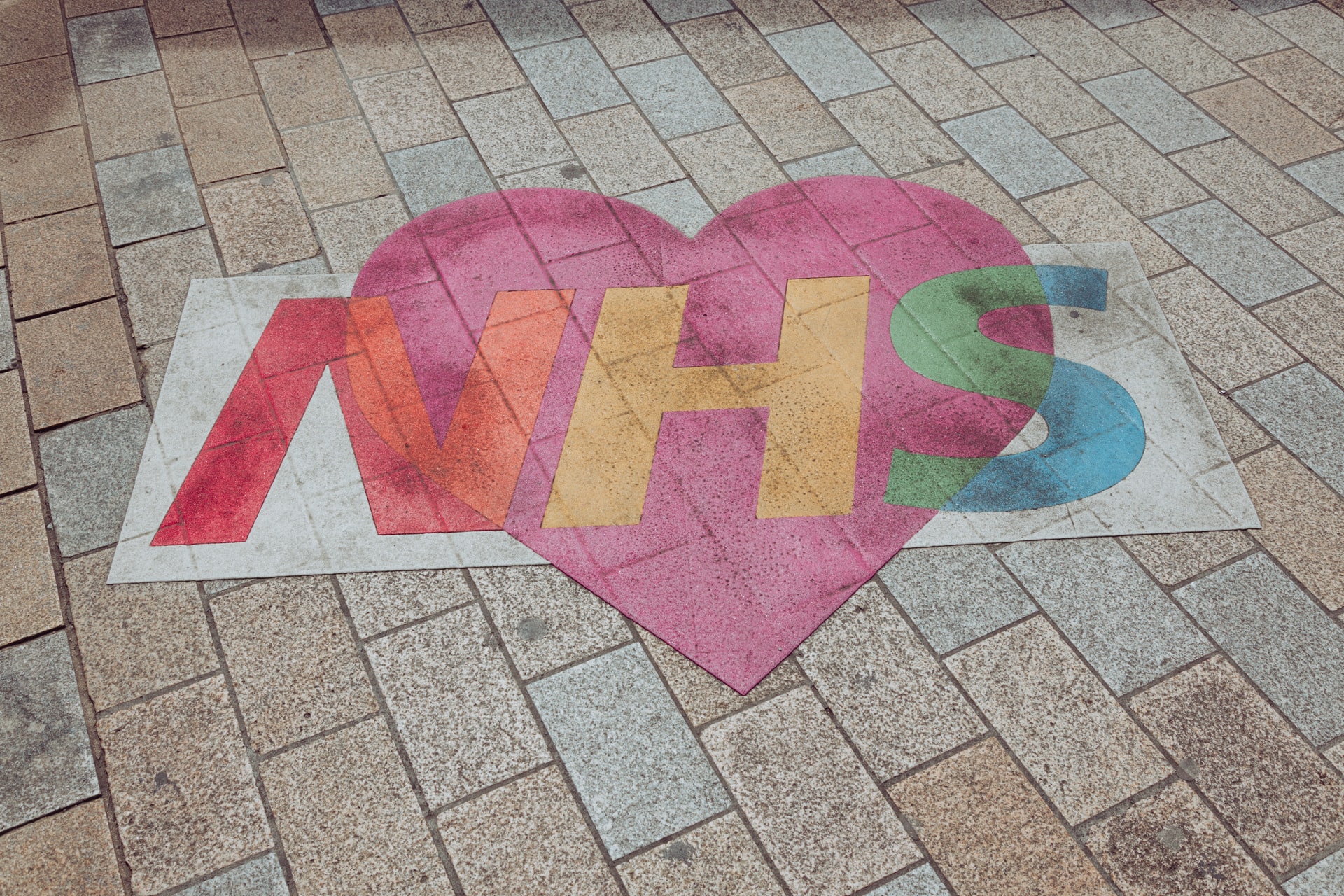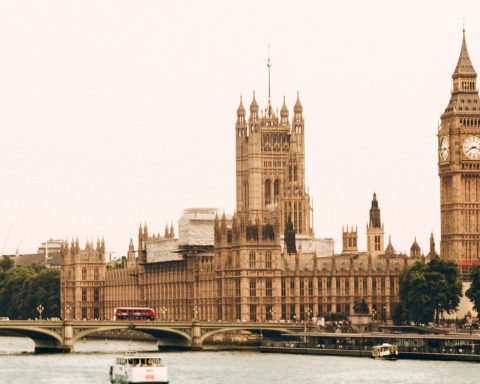Hannah Fox is a salaried GP with an interest in inclusion health, having worked and volunteered for Doctors of the World UK.
Durga Sivasathiaseelan is a GP and works full-time for Doctors of the World UK as Mobile Clinic and Outreach Coordinator.
The war in Ukraine is resulting in the fastest growing refugee crisis since World War II, with the displacement of 4.7 million people and counting.1 In the face of another refugee crisis the UK Government’s response has been widely criticised as being woeful, restrictive, and ‘lacking humanity’.2,3 This reflects the political landscape of the last decade, with ongoing immigration reforms under the so-called ‘hostile environment’; the latest iteration being the Nationality and Borders Bill.
This Bill proposes to introduce a new two-tiered immigration system, and off-shore processing sites, which will trap many refugees in a cycle of temporary status. It specifically penalises those who arrive through ‘irregular’ routes, which often means perilous and drawn-out journeys. This undermines the 1951 Refugee Convention and international law.
At Doctors of the World UK (DOTW) our services have evolved rapidly in response to the changing policies and resulting needs. In our clinic we see how insecure immigration status leads to poor access to medical services and worse health outcomes.
Policy and legislation recap
‘The aim is to create, here in Britain, a really hostile environment for illegal immigrants’. Theresa May, 2012
A decade on from its political inception, the hostile environment continues to be the guiding principle. It led to the transformation of the British immigration system, introducing a web of policies in public sector services (health, education, housing, and banking) in the attempt to deter ‘illegal immigrants’. I have previously argued why charging migrants will harm the most vulnerable.4 Data from DOTW shows that, as predicted, the Charging Regulations that came into force in April 2015 (with amendments in 2017), target those already living in destitution — 96% of our service users who have received bills are destitute and have no means to pay.5
In our daily work at DOTW we see the fear that the hostile environment has created in service users who have an insecure immigration status. A fear that means our patients avoid NHS services due to concerns about cost, discrimination, or being reported to the Home Office. This divisive policy has created a two-tiered healthcare service, not just through entitlements and cost but through immigration checks and deterrence.
The two-tiered system will be further entrenched if the Nationality and Borders Bill is passed. DOTW has publicly voiced concern about the impact it will have on health and access to health care.6 First, for those who arrive by their own means (for example, on the back of lorries or crossing the channel by boat) a ‘temporary protection status’ will be granted, which effectively denies certain rights compared to those who arrived through a visa or re-settlement route. This includes limiting the individual’s rights to settle in the UK, to family reunification, and recourse to public funds.
‘This Bill would undermine, not promote, the Government’s stated goal of improving protection for those at risk of persecution. It seems to be aimed at deterring refugees, but there’s no evidence that would be the result.’ Rossella Pagliuchi-Lor, United Nations High Commissioner for Refugees Representative in the UK7
Second, the plan for greater use of institutional accommodation for those seeking sanctuary will impact on physical and mental wellbeing, result in poorer community integration, and increase pressure on local services.
At Napier Barracks there are no local GP surgeries to register the residents so they must rely on a skeletal service provided by a nurse and sometimes a doctor who cannot offer comprehensive primary care. In other areas, GP practices face an influx of newly registered patients without the necessary support offered to the local health systems by the central government.
There is evidence that asylum accommodation in remote or unfamiliar locations has the biggest negative impact on health.8 Napier Barracks is a prototype for the Home Office’s new accommodation centres. Despite much scrutiny about the inhumane and re-traumatising conditions found in the barracks,9 the Home Office proposes to extend the use of Napier and similar accommodation sites.10
Access to primary care
Primary care continues to be free to all regardless of immigration status; however, at DOTW we consistently find that people with insecure immigration status are not registered with a GP and are largely excluded from NHS services.
… restrictive policies are more costly in the long term … health care for all migrants has direct and indirect economic advantages …
In 2020, three-quarters of our service-users were not registered with a GP when they first came to our clinic, even though they had been in the UK for 9 years on average. During 2020, the numbers of asylum seekers living in hotel accommodation increased dramatically with the research indicating that they were struggling to access much needed health care.11 This has also had implications for the COVID-19 vaccination programme, which, at the start, required individuals to have an NHS number and an active GP registration in order to book a vaccination appointment.
The Safe Surgeries initiative was launched in 2018 to tackle the issue of barriers to primary care. Barriers include administrative (being asked for proof of ID or address to register), language barriers, fear or experience of discrimination, fear of data sharing or reporting of insecure immigration status, fear of cost, and more recently, digital exclusion.
The campaign provides resources including toolkits and online training to practices so they can adopt more inclusive registration policies, improve their understanding of entitlements to care, improve use of interpreting services, and ensure their practice is a welcoming environment.
There are now 700 Safe Surgeries across the UK; however, there is still a significant amount of work to be done. A recent report by the Bureau of Investigative Journalism has found that less than a quarter of all GP surgeries would register someone without proof of address or identity.12
Access to secondary care
Since the amendment to the Charging Regulations in 2017, it has been mandatory for NHS Trusts to demand payment in advance of providing services, unless doing so would prevent or delay the provision of ‘immediately necessary or urgent’ treatment. Those who have to pay are charged 150% of the NHS tariff for secondary health care. The high tariffs are set to incentivise Trusts to recoup payments.
… current Charging Regulations are failing, and there is an urgent need for reform.
Between 2019 and 2020, DOTW supported 27 individuals to challenge delays in care or inappropriate bills.5 Of this group, 96.3% of individuals who were charged for care were already destitute (did not have adequate accommodation and/or could not meet essential costs of living). These individuals have no realistic prospect of being able to pay for the NHS services they receive. The charging system delayed care, with the average delay in receiving treatment of 37.3 weeks. In 22.2% of cases, the NHS Trust did not follow the guidance and failed to apply a charging exemption, meaning individuals were incorrectly charged.5
Case study: Jean*
Jean arrived from Azerbaijan in 2018 to visit her adult children and applied for leave to remain. She noticed a lump in her right groin, which was diagnosed as a nodal malignant melanoma. Further investigation found a separate primary lung cancer, which had not spread and could potentially be radically treatable. This case involved three hospitals. The West Suffolk could not provide vital immunotherapy to treat the melanoma, so referred her to Cambridge University Hospitals (CUH). CUH felt this treatment was not urgent and refused to provide it unless she paid £150 000 upfront. This meant that a third hospital Trust, Royal Papworth, could not provide the required treatment for her lung cancer.
In August 2019, DOTW intervened advocating for Jean to receive urgent care based on all the clinicians’ assessments from all three hospitals. The casework involved communication with overseas visitor managers (OVMs), hospital management, and clinicians to clarify the regulations and entitlement to urgent care. During the course of September 2019, CUH carried out further immigration checks and ultimately concluded that Jean would not be returning to her home country and therefore the treatment was deemed ‘urgent’. Jean finally began her immunotherapy but sadly by this point her cancer was metastatic and the treatment was palliative. She died in August 2020.
Interviews with NHS staff exposed a highly complex, costly system that incentivises racial profiling.
As this case demonstrates, the regulations are complicated and are frequently misunderstood by clinicians and OVMs and misapplied by Trusts leading to delayed care. In the worst cases, as in Jean’s case, this leads to premature death.
Our findings are reflected in a recent report by the Institute for Public Policy Research (IPPR) think tank, who report that the system is ‘unfit for purpose’. Interviews with NHS staff exposed a highly complex, costly system that incentivises racial profiling.13 In addition, the administration of the system was significantly costly, with only a fraction of the amounts invoiced being recovered, especially for patients who were destitute.13
Evidence from Germany shows that restrictive policies are more costly in the long term, and that providing health care for all migrants has direct and indirect economic advantages for the host country, as well as improving public health and social cohesion.14
Reform is needed
The current Charging Regulations are failing, and there is an urgent need for reform. The evidence is clear; the regulations are harmful to patients, deter those with insecure status from accessing health care, and have serious implications for public health, as highlighted by the COVID-19 pandemic. Even the premise of economic gains have not been proven; the Department of Health and Social Care has struggled to estimate the net gain of the visitor and migrant cost recovery programme for the NHS.13
The IPPR proposes expanding access to free health care by replacing the current definition of ‘ordinary residence’ with one that includes all people living in the UK regardless of their immigration status.13 This would allow people to easily provide proof of UK residency through statements from community figures such as GPs, social workers, teachers, landlords, or neighbours. In turn this would help to ensure that no one living in England is refused care because of their immigration status. It would be a step closer to restoring the universal health coverage the NHS once offered.
Finally, the Nationality and Borders Bill should be scrapped. Alongside the British Medical Association and Royal Colleges, DOTW calls on the UK Government to re-think its plans to reform the asylum system and prioritise the health and wellbeing of people seeking sanctuary in the UK.15
*The case study was published in The Guardian
References
- United Nations High Commissioner for Refugees. Ukraine refugee situation. 2022. https://data2.unhcr.org/en/situations/ukraine (accessed 14 Apr 2022).
- Solomon E, Jackson B, Regan J, et al. There is no excuse for woeful UK response to Ukraine’s refugee crisis. The Guardian 2022; 8 Mar: https://www.theguardian.com/world/2022/mar/08/there-is-no-excuse-for-woeful-uk-response-to-ukraines-refugee-crisis (accessed 14 Apr 2022).
- Trades Union Congress. Trade unions call for ‘emergency support’ from Chancellor in response to Ukraine crisis. 2022. https://www.tuc.org.uk/news/trade-unions-call-emergency-support-chancellor-response-ukraine-crisis (accessed 14 Apr 2022).
- Kilner H. Hostile health care: why charging migrants will harm the most vulnerable. Br J Gen Pract 2014; DOI: https://doi.org/10.3399/bjgp14X681565.
- Doctors of the World. Delays & destitution: an audit of Doctors of the World’s Hospital Access Project (July 2018-20). 2020. https://www.doctorsoftheworld.org.uk/wp-content/uploads/2018/11/Delays-and-destitution-An-audit-of-Doctors-of-the-Worlds-Hospital-Access-Project-July-2018-20.pdf (accessed 14 Apr 2022).
- Besana M, Ciftci Y, Makuyana T. The UK’s immigration plans threaten the health outcomes of asylum seekers and refugees. BMJ 2022; 376: o165.
- United Nations High Commissioner for Refugees. The Nationality and Borders Bill. 2022. https://www.unhcr.org/uk/uk-immigration-and-asylum-plans-some-questions-answered-by-unhcr.html (accessed 14 Apr 2022).
- Nellums LB, Rustage K, Hargreaves S, et al. Access to healthcare for people seeking and refused asylum in Great Britain. 2018. https://www.equalityhumanrights.com/sites/default/files/research-report-121-people-seeking-asylum-access-to-healthcare-evidence-review.pdf (accessed 14 Apr 2022).
- Amnesty International UK. UK: Home Office forcing more people to live in ‘squalor and inhumane conditions’ at Napier Barracks. 2021. https://www.amnesty.org.uk/press-releases/uk-home-office-forcing-more-people-live-squalor-and-inhumane-conditions-napier (accessed 14 Apr 2022).
- Foster K. Re: Extension of Home Office’s tenure of the Napier Barracks. 2021. https://appgdetention.org.uk/wp-content/uploads/2021/09/2021-08-27-FBIM-to-Alison-Thewliss-MP.pdf (accessed 14 Apr 2022).
- Lessard-Phillips L, Fu L, Lindenmeyer A, Phillimore J. Barriers to wellbeing: migration and vulnerability during the pandemic. 2021. https://www.doctorsoftheworld.org.uk/wp-content/uploads/2021/09/Barriers-to-wellbeing-09.21.pdf (accessed 14 Apr 2022).
- Hamada R, Mellino E, Gayle V, et al. Most GP surgeries refuse to register undocumented migrants despite NHS policy. 2021. https://www.thebureauinvestigates.com/stories/2021-07-15/most-gp-surgeries-refuse-to-register-undocumented-migrants (accessed 14 Apr 2022).
- Morris M, Nanda S. Towards true universal care: reforming the NHS charging system. 2021. https://www.ippr.org/files/2021-11/1637756688_nhs-charging-nov21.pdf (accessed 14 Apr 2022).
- Gulland A. Providing preventive care to migrants saves money, study finds. BMJ 2015; 351: h4806.
- Waters E, Chisholm J, Rae M, et al. Joint letter: concerns about the health implications of the Nationality and Borders Bill. 2021. https://www.doctorsoftheworld.org.uk/news/joint-letter-concerns-about-the-health-implications-of-the-nationality-and-borders-bil (accessed 14 Apr 2022).
Featured photo by Nicholas J Leclercq on Unsplash.






